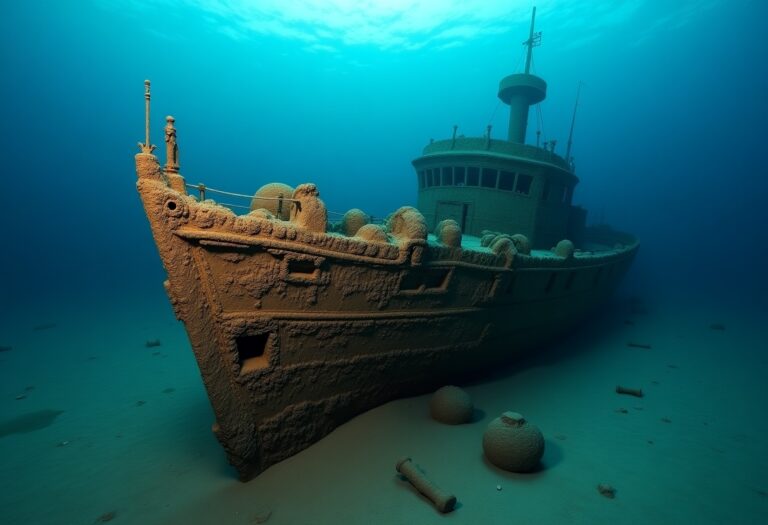Deep-sea divers confirm the identity of the Royal Navy vessel lost in 1914.

Topics covered
Introduction to the HMS Hawke discovery
In a significant maritime archaeological breakthrough, deep-sea divers have confirmed the identity of the HMS Hawke, a Royal Navy vessel that sank during World War I. This discovery, made off the coast of Fraserburgh, marks the first visual confirmation of the ship since it was torpedoed by a German U-boat on October 15, 1914, resulting in the tragic loss of over 500 crew members.
Details of the wreckage
The wreck of HMS Hawke was located approximately one kilometer from an obstruction noted on nautical charts, and about ten kilometers from the location estimated by the UK Hydrographic Office in the 1970s. The condition of the wreck has been described as “remarkable,” with divers from the organization Lost Waters Deep documenting various features that confirm its identity as the ill-fated warship.
Among the notable artifacts discovered are two large guns, an Admiral’s walkway, navigation equipment, and even pieces of teak decking.
The significance of the find
Steve Mortimer, one of the divers involved in the expedition, emphasized the historical importance of the wreck, referring to it as a “remarkable time capsule.” He noted that the ship’s preservation is likely due to its depth and the fact that it had never been dived before.
The wreck site offers a glimpse into the past, with artifacts such as Royal Navy crockery, including teacups and plates, still visible on the deck. This discovery not only sheds light on the naval history of World War I but also serves as a poignant reminder of the sacrifices made by those who served.
Efforts behind the discovery
Kevin Heath, who leads Lost Waters Deep, expressed his pride in the team’s efforts to locate the wreck. He highlighted the extensive research that preceded the dive, which was crucial in pinpointing the right area for exploration. The confirmation from the Royal Navy that the wreck is indeed HMS Hawke has brought a sense of closure to the families of the 526 sailors who lost their lives that fateful day. Heath stated, “To have the Navy confirm this means that the final resting place of those 526 souls is no longer ‘lost’ and the site can be protected for future generations.”
Community and historical appreciation
Lieutenant Commander Jen Smith, who has participated in previous dives, acknowledged the vital role of volunteers in locating and identifying wrecks around the UK. She expressed gratitude for their dedication, stating that without such efforts, many sailors’ resting places would remain undiscovered, and their sacrifices would be forgotten. The discovery of HMS Hawke not only honors the memory of those who served but also enriches our understanding of maritime history.




